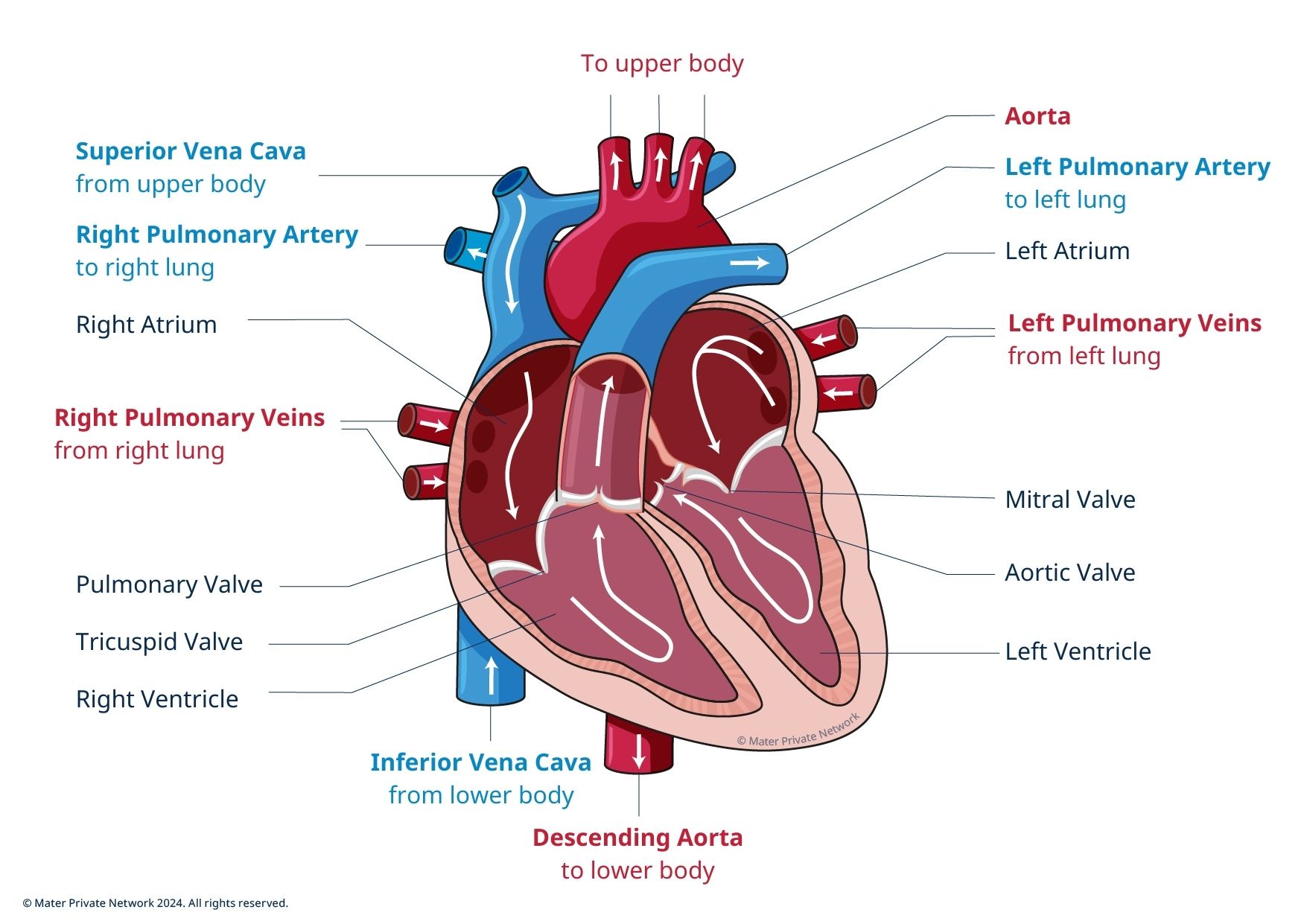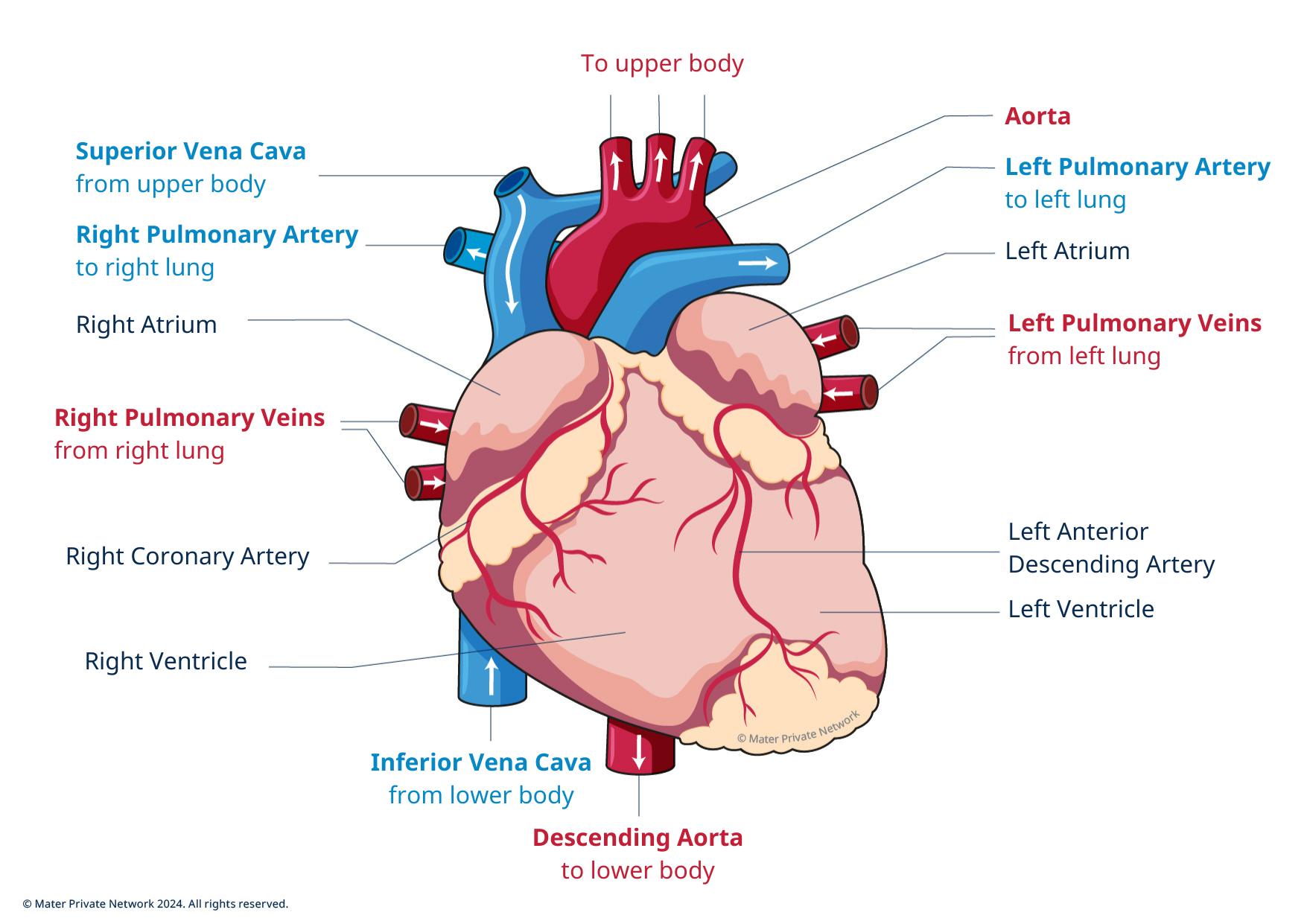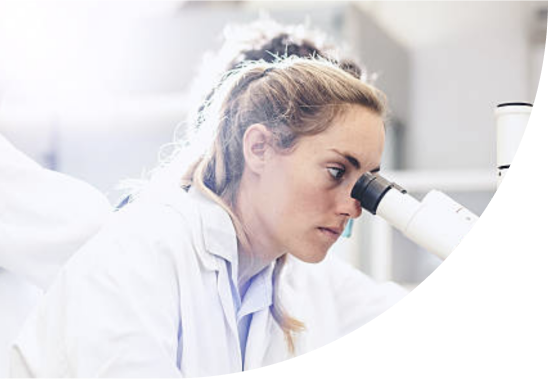Arrhythmia Clinic
Contact Us
Request an AppointmentPlease note that a referral letter is required before an appointment can be confirmed.
Useful Information
About our service
Mater Private Network offers a complete range of treatment options for Arrhythmia patients in our Dublin and Cork hospitals - ranging from medication to the use of an electrical device.
Mater Private Arrhythmia Clinic in Dublin is Ireland’s first and largest Electrophysiology Group Practice. We offer access for patients with new onset, recurrent or difficult to treat heart arrhythmias. Patients are cared for in a dedicated electrophysiology treatment suite, equipped for state-of-the-art diagnostic, ablation and device implantation services.
Arrhythmia services in both of our hospitals are accessed by GP referral, and provide rapid access to a consultant electrophysiologist with specialist expertise in advance treatments of arrhythmia, including atrial fibrillation.
At Mater Private Hospital Dublin we treat more arrhythmia patients than any other centre in Ireland.


What you need to know
An Arrhythmia is an abnormality of the heart's rhythm. It may beat too slowly, too quickly, or irregularly. These abnormalities range from a minor inconvenience or discomfort, to a potentially life threatening problem. If you are concerned, it is a good idea to keep a diary to monitor any activities or triggers you associate with an arrhythmia episode.
Atrial fibrillation (also called AFib or AF) is the most common arrhythmia. Atrial fibrillation is an irregular and often rapid heartbeat that can lead to stroke, heart failure and other heart-related complications. Although atrial fibrillation itself usually isn't life-threatening, it is a serious medical condition that sometimes requires emergency treatment
What to expect
- ECG (electrocardiogram): records the heart rhythm and activity on a moving strip of paper. This is often the first test you will have, but it only captures information at that specific moment in time, so you may need additional tests.
- 24/48 hour ECG monitor: you may be asked to wear a portable ECG monitor for one or two days to record information on your heart’s activity over an extended period of time. This may be because the initial ECG was inconclusive.
- Echo (echocardiogram): an echo is a test which uses an ultrasound scan to look at the structure of your heart.
Note: Additional testing may be performed if specifically requested by the electrophysiologist, such as - event monitor/tilt-table testing/stress test.
Following testing, your results will be discussed with you during your consultation with a consultant cardiologist who has expertise in arrhythmia (this specialist is known as an electrophysiologist).
- Risk assessment for stroke and prescribing the most appropriate blood thinning medication for your atrial fibrillation.
- Arrhythmia medication optimisation.
- Evaluation of suitability for procedures e.g. ablation.
- If necessary, further follow up appointments may be made with Mater Private Arrhythmia Clinic.
Treatments
- Anti-arrhythmic drugs to return your heart to a normal rhythm
- Drugs to control the heart rate
- ‘Warfarin’ or aspirin to reduce the risk of clots forming or strokes
- Stop smoking
- Drink sensibly
- Reduce or stop taking caffeine (tea/coffee/Coca-Cola or similar)
- Avoid taking medications, herbal remedies or supplements which contain stimulants
An electric shock is delivered to your chest wall that allows your heart to return to a normal rhythm.
The delivery of high-frequency electrical energy to certain areas of tissue in the heart “disconnects” the abnormal rhythm.
This is a small device implanted into the chest wall. The device sends small electrical impulses to the heart allowing it to maintain a normal heart rhythm. It is mostly used for patients who have a low heart rate.
This is the implantation of an electrical device in the chest cavity. The device monitors your heart rhythm and when the abnormal rhythm occurs it delivers a ‘shock’ to the heart wall to return the heartbeat to normal.
Our service includes:
- Rapid access to team of consultant electrophysiologists and arrhythmia nurse specialist
- Four clinic locations nationwide (Dublin, Drogheda, Mullingar and Navan)
- State-of-the-art diagnostic and treatment facilities
- Out-of-hours, Urgent Cardiac Care service: 24 hours a day, 7 days a week, year-round (365 days)
- Access to other cardiology sub-specialties
- Referral on to associated consultants as needed, e.g. sleep disorders, diabetes







.jpg?sfvrsn=bc97231b_1)



